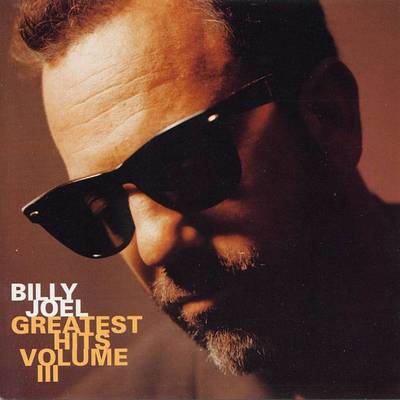
Greatest Hits Volume 3 (1996)

1. Keeping the Faith
2. An Innocent Man
3. A Matter of Trust
4. Baby Grand
5. This is the Time
6. Leningrad
7. We Didn't Start the Fire
8. I Go to Extremes
9. And So it Goes
10.The Downeaster "Alexa"
11.Shameless
12.All About Soul (Remix)
13.Lullabye (Goodnight, My Angel)
14.The River of Dreams
15.To Make You Feel My Love
16.Hey Girl
17.Light as the Breeze
By the mid-1990s, Billy Joel had reached a curious impasse. The pen was down. The muse had apparently left the building. And while many artists pay lip service to retirement—only to quietly return when boredom or bankruptcy sets in—Joel’s commitment to stepping away from songwriting proved sincere. His last original pop studio album, River of Dreams, had already taken its bow. What followed was not a comeback, but a consolidation.
Greatest Hits Volume III arrives, then, not as a celebration of artistic rebirth, but as a dutiful summation of a quieter chapter. Its title implies continuity with the sprawling, genre-defining Volumes I and II, but the scope here is narrower, the material thinner. That’s no slight against Joel’s late-period work—it’s merely the reality that only three studio albums (and diminishing airplay) separated this collection from its illustrious predecessor.
The tracklist is chronological, as before, but the chronology itself feels less compelling. Storm Front dominates the proceedings, accounting for six of the album’s sixteen tracks. It’s not a bad decision—Storm Front was arguably his last full-blooded rock album, and songs like I Go to Extremes and The Downeaster Alexa remain resonant. But the omission of Modern Woman is both conspicuous and telling.
Joel, for reasons he’s never fully explained, appears to have disowned the hit—replacing it with softer fare like This Is the Time, which, while earnest, lacks the earlier single’s melodic muscle.
Perhaps aware of the slightness of the offering, Joel adds two latecomers from the An Innocent Man era—An Innocent Man and Keeping the Faith. Both were casualties of length when Volumes I and II were compiled, and both slot neatly into this collection, if somewhat awkwardly in terms of temporal flow. Still, they lend some much-needed backbone to the set.
Then comes the padding. Three new recordings, though not originals, round out the package. Joel, no longer writing, turns to the greats—Bob Dylan, Leonard Cohen, and Carole King. The covers are competent, respectful, but largely unmemorable. They feel more like curios than revelations. In choosing to interpret rather than create, Joel seems to be signaling a final closing of the book. There's a touch of valediction in his voice, but not enough to lift these tracks beyond decorative.
As an isolated compilation, Volume III feels like an afterthought. As part of a boxed set (which it would soon become, bundled with Volumes I and II), its utility increases. But the album struggles to stand on its own legs, lacking the thematic heft or commercial punch of its predecessors.
In the end, Greatest Hits Volume III is less a monument than a footnote—a polite coda to a once-dominant voice. It marks the moment when Billy Joel, pop’s perennial storyteller, finally went quiet.
Back To Main Page
Go To Next Review